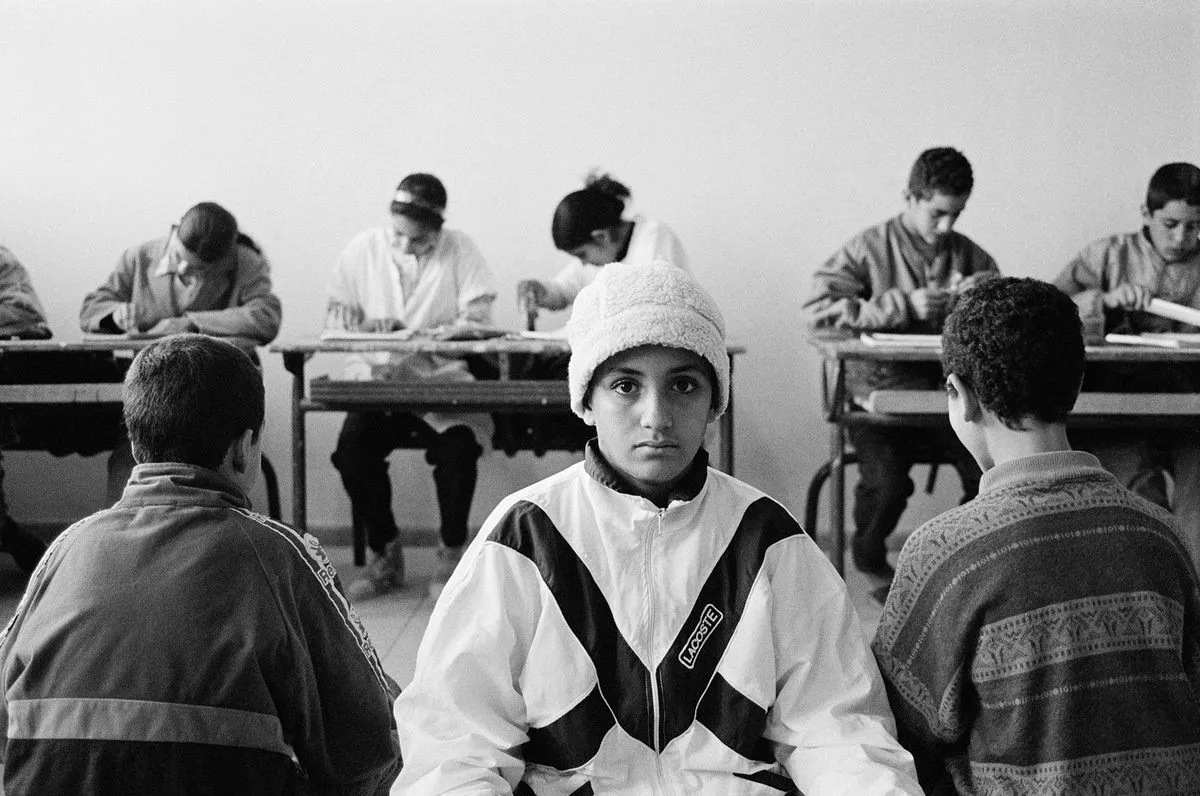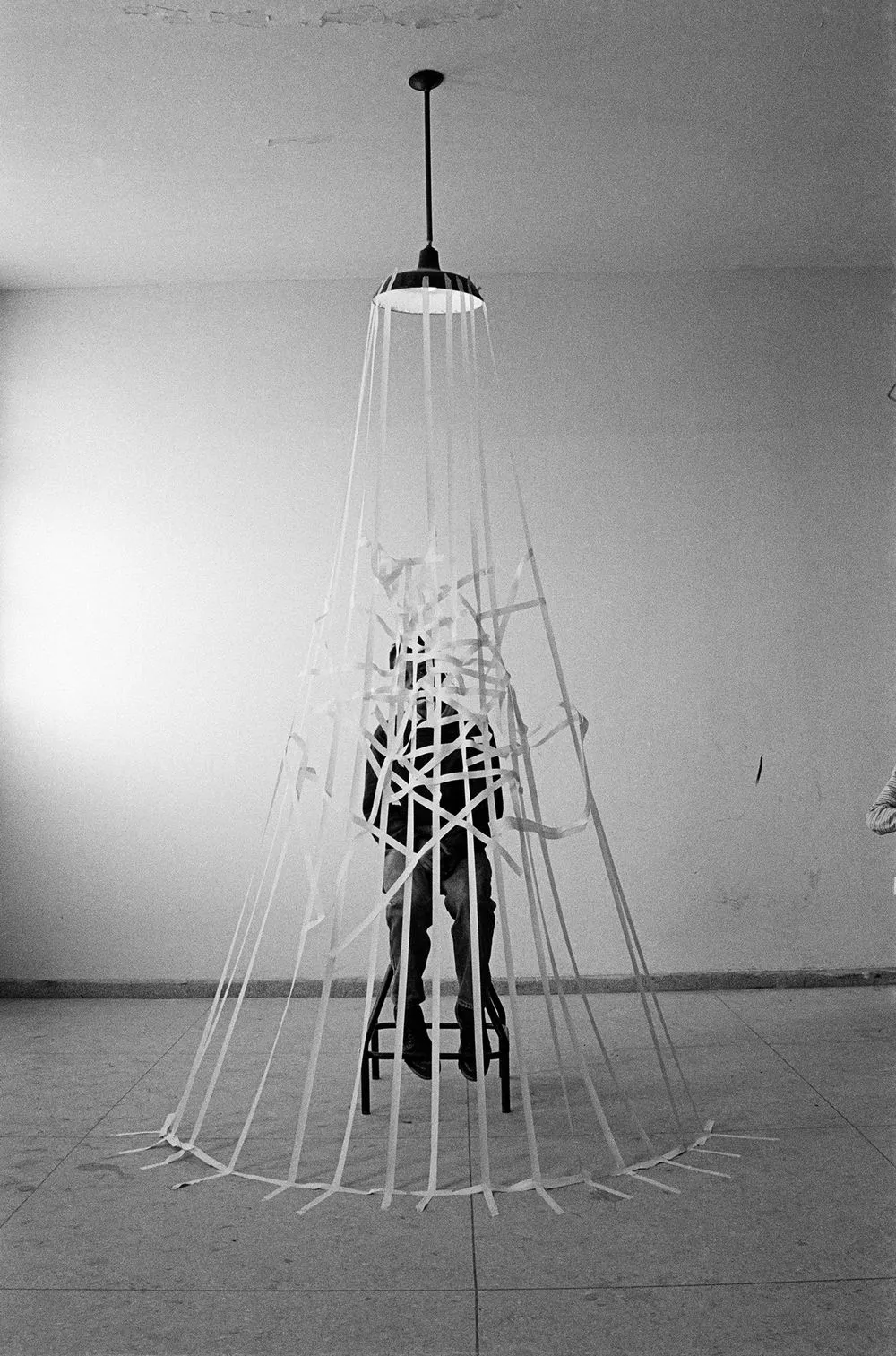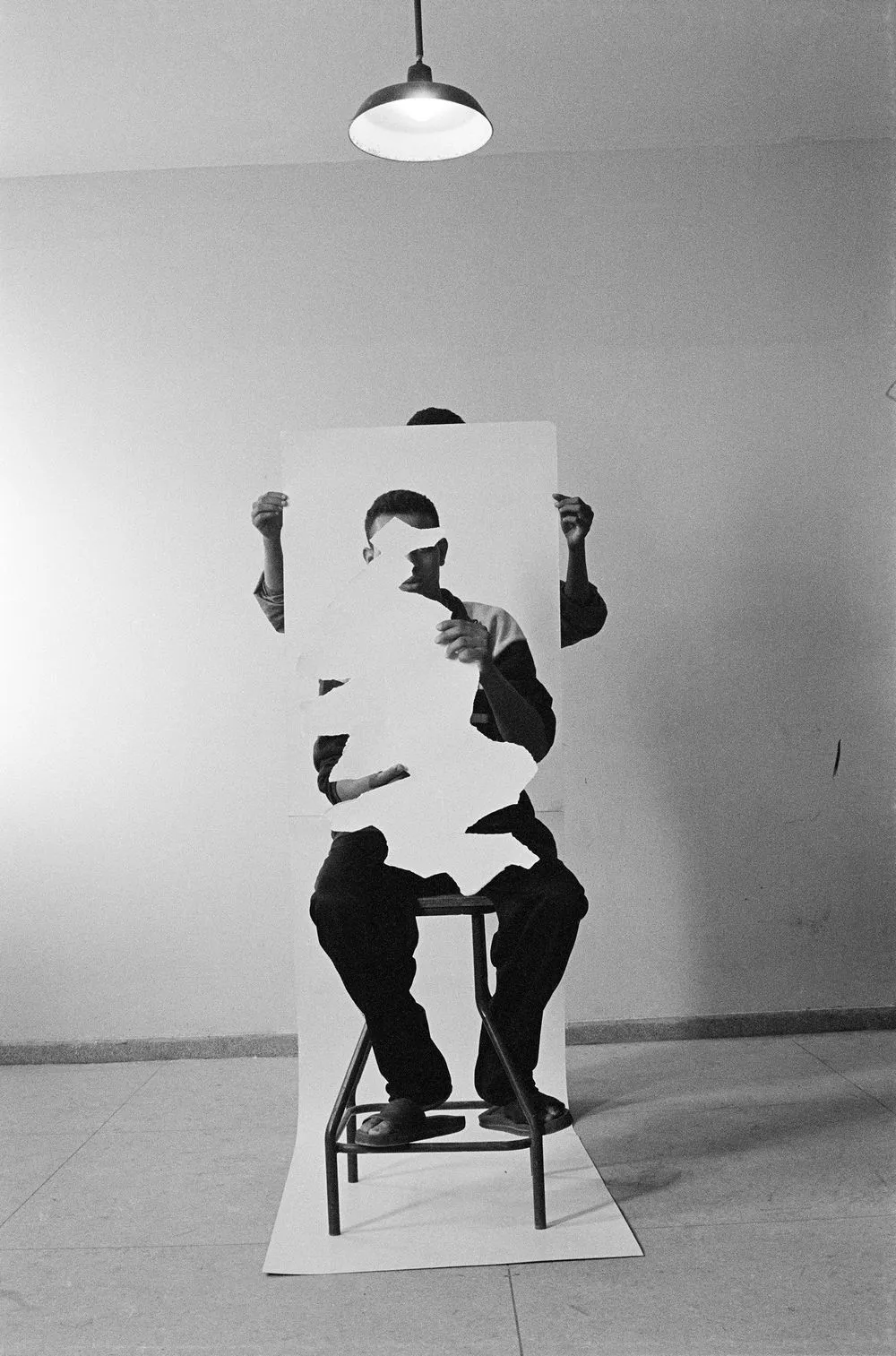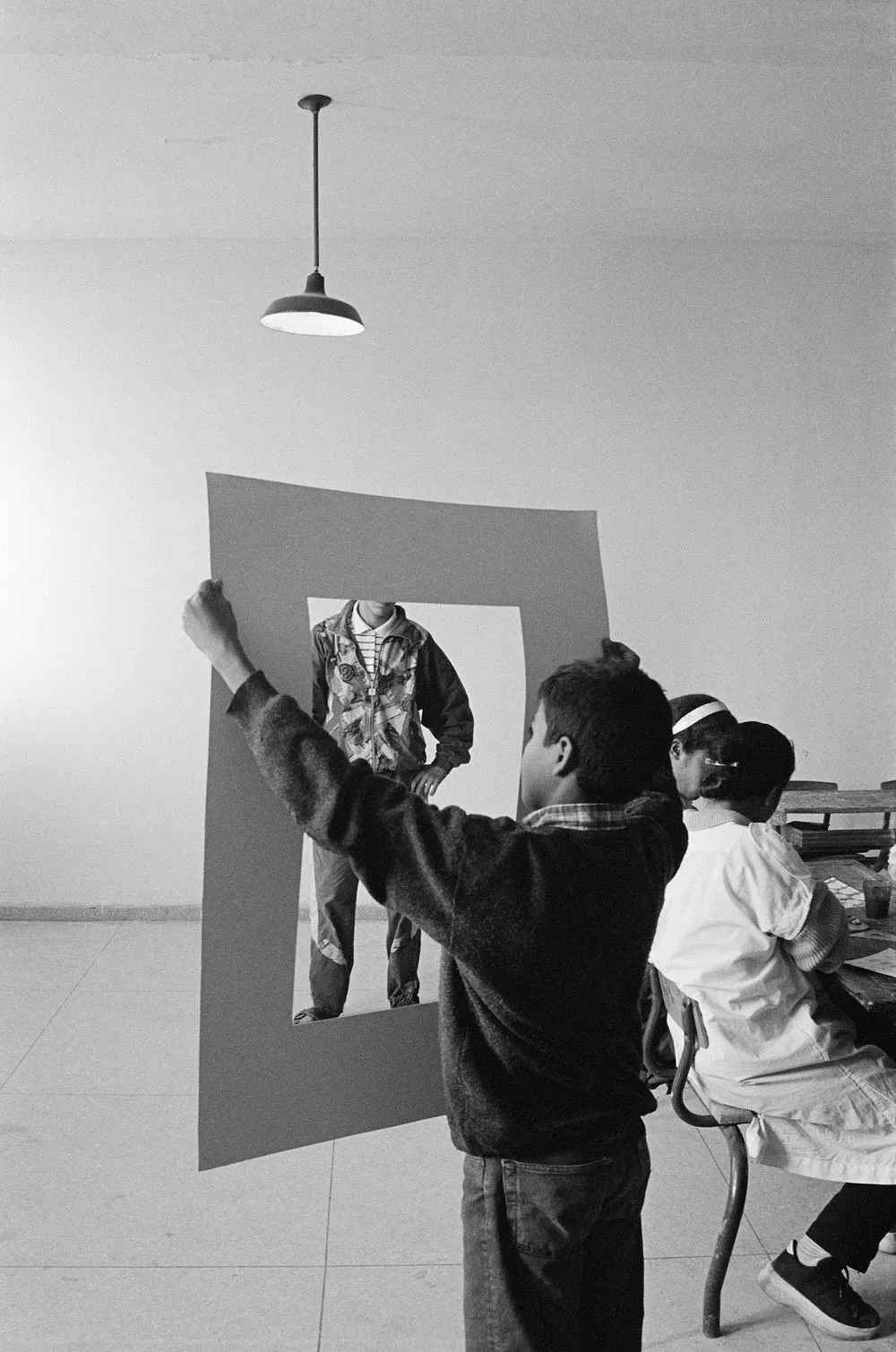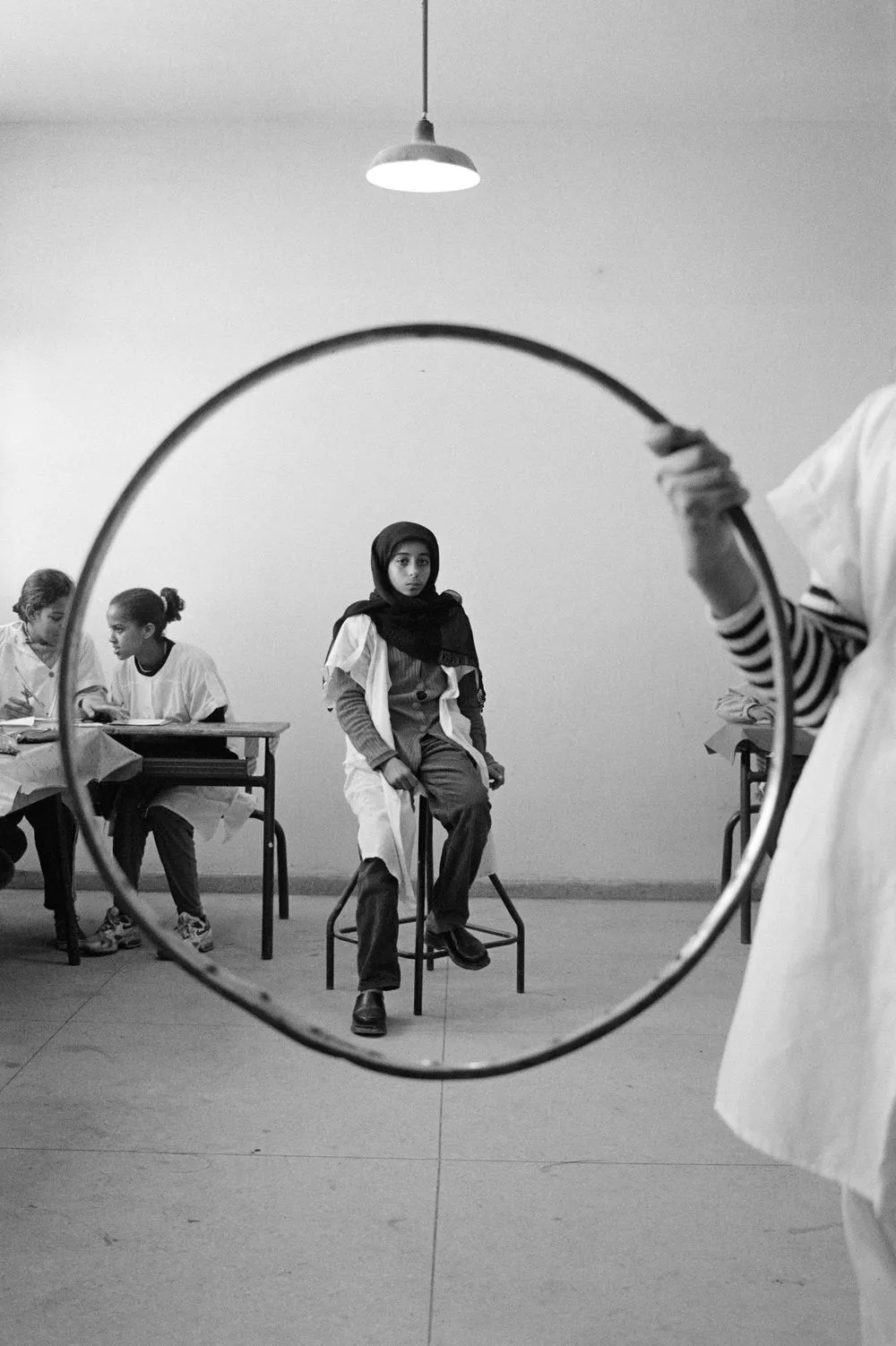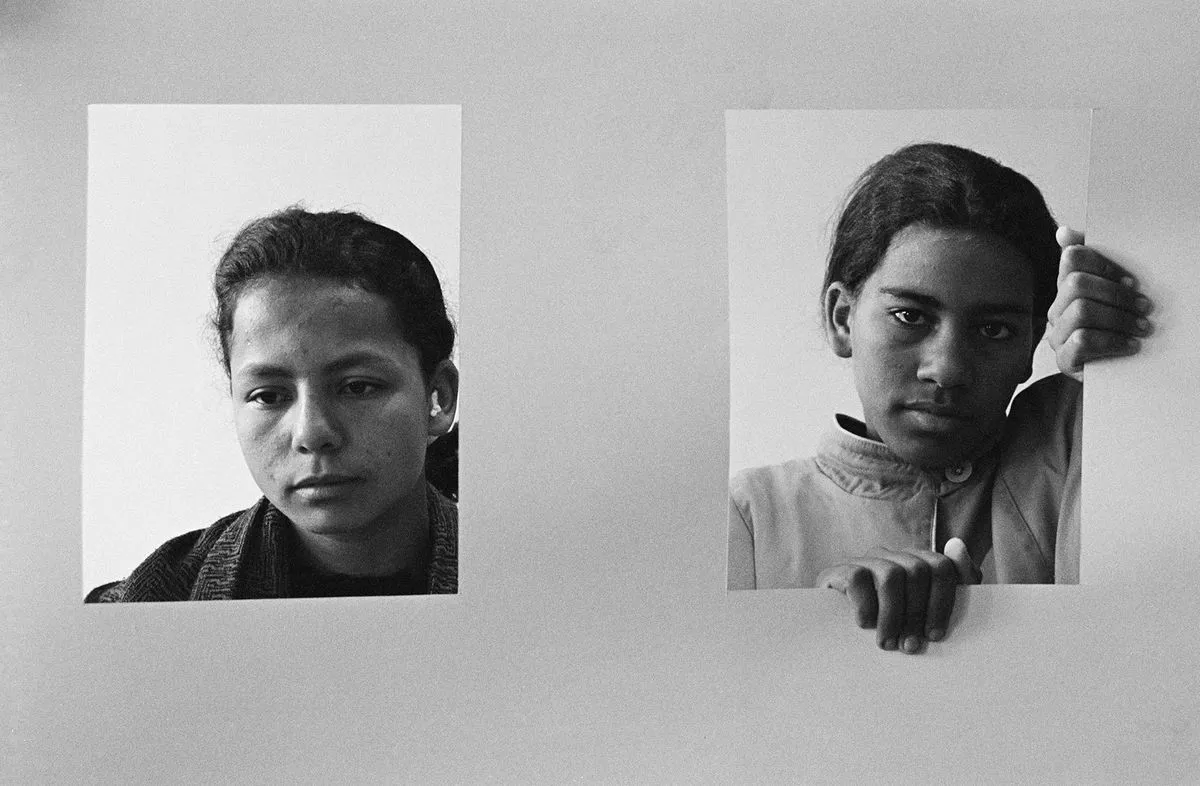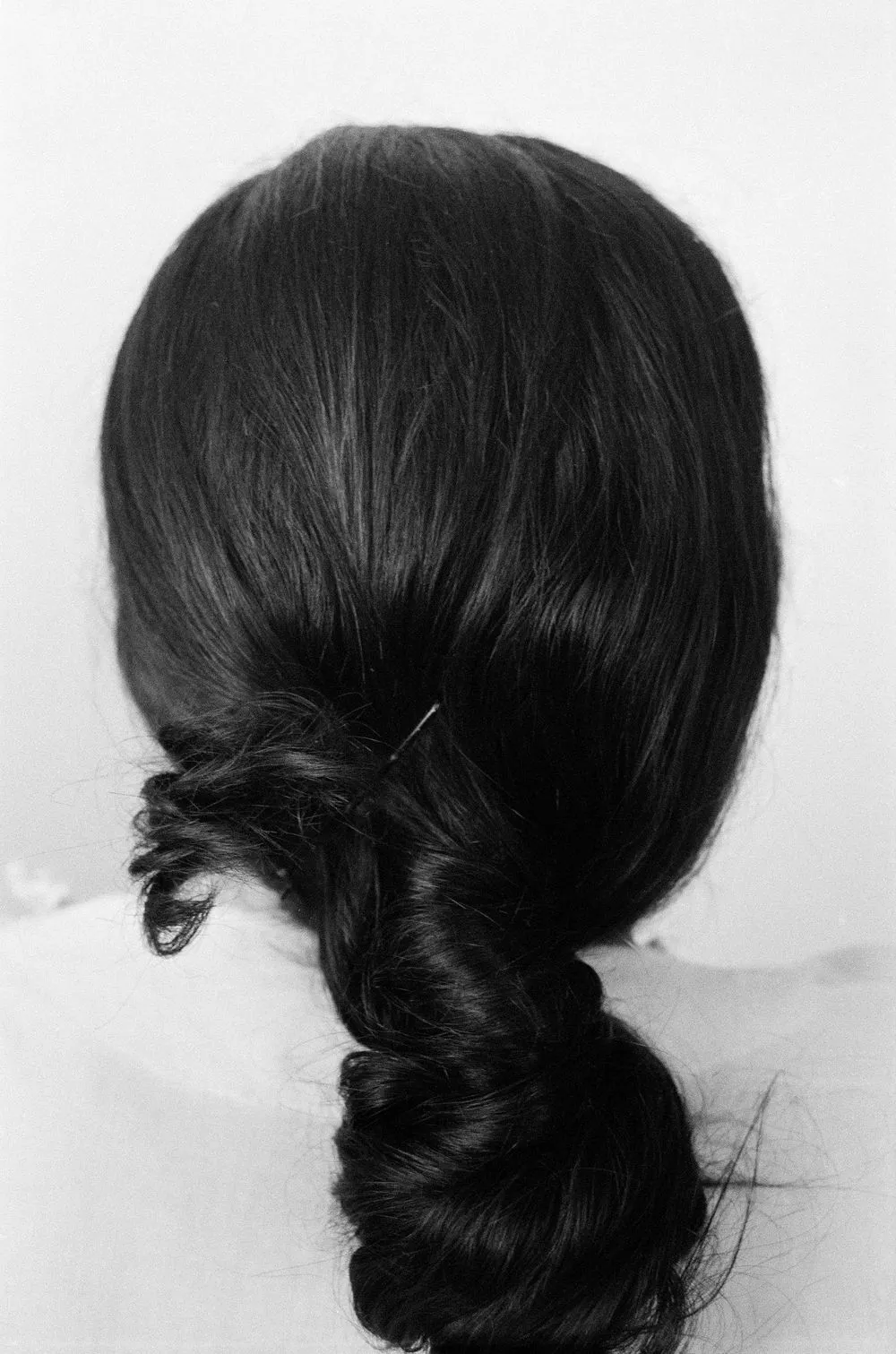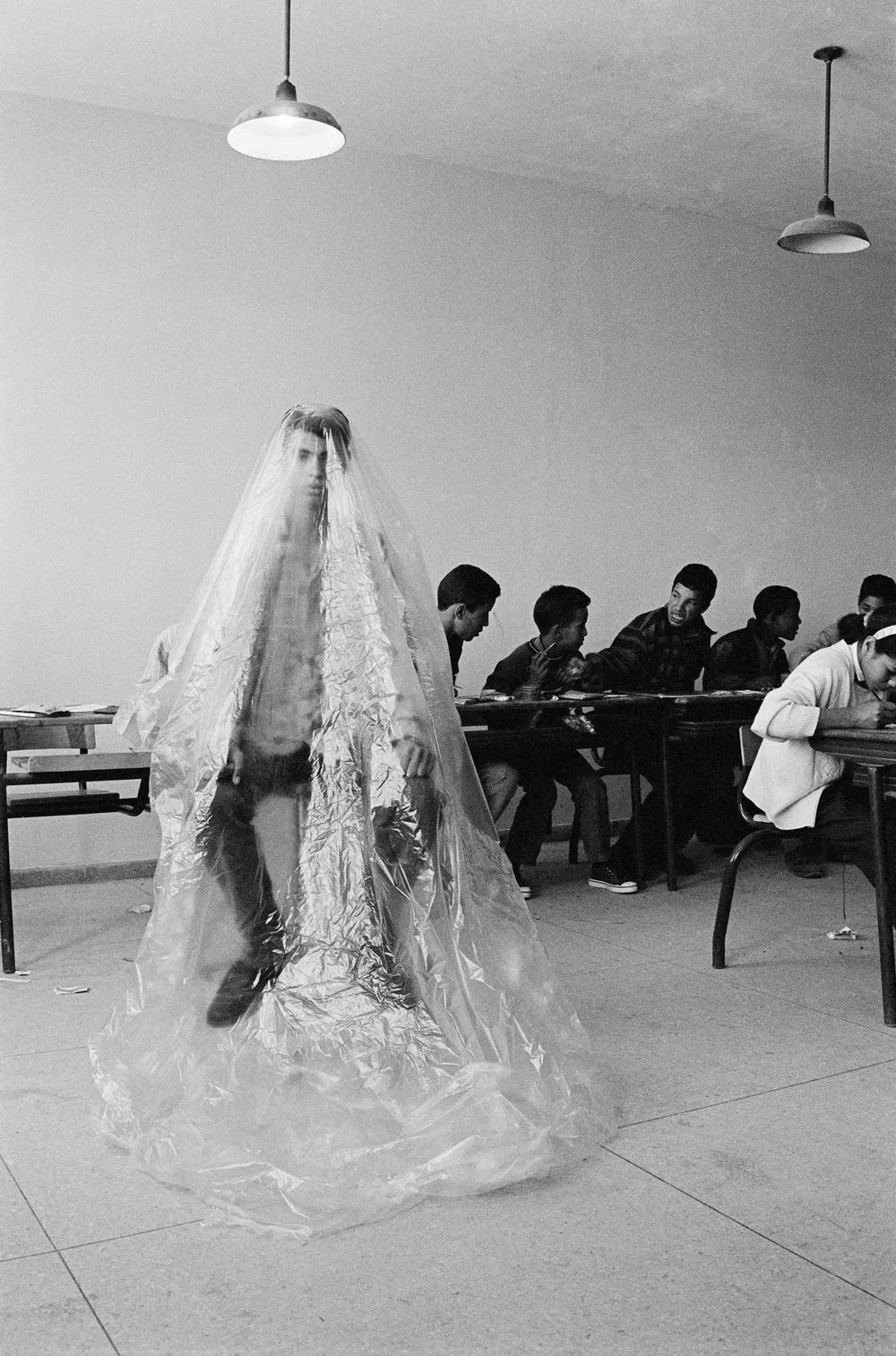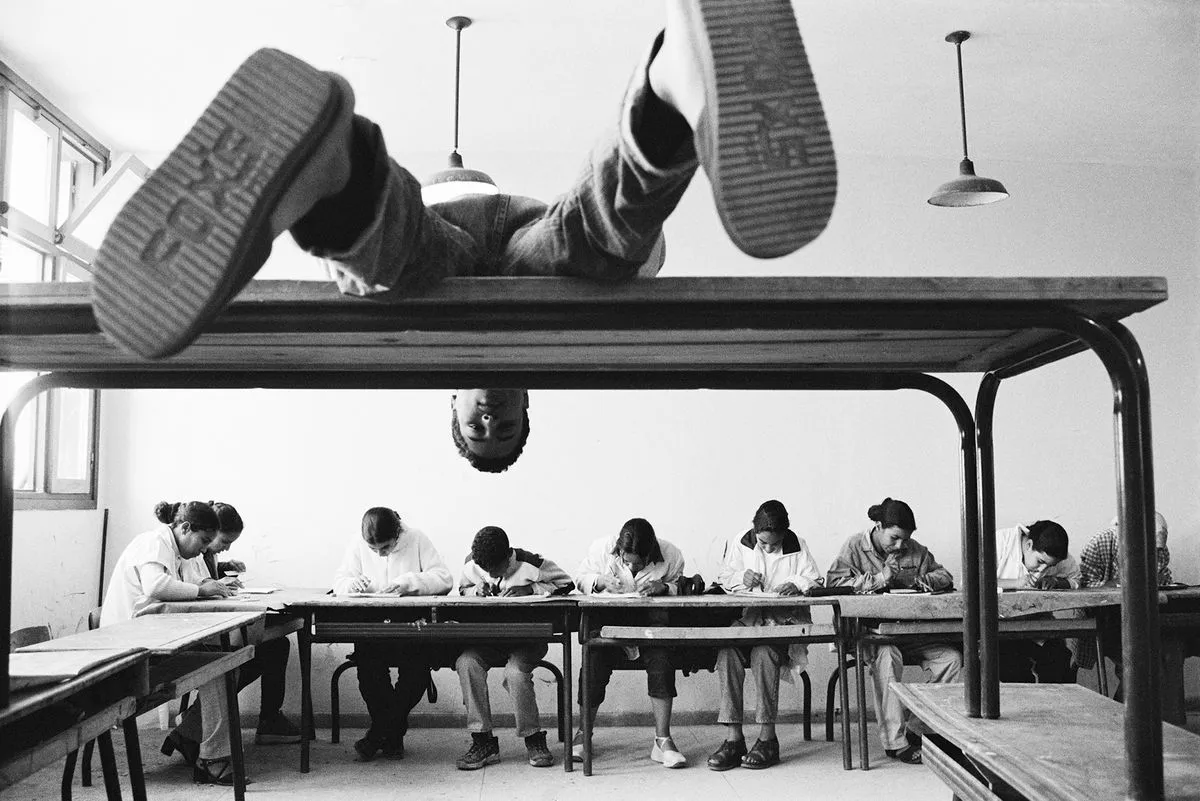 The Classroom by Hicham Benohoud © Hicham Benohoud 2025 courtesy Loose Joints
The Classroom by Hicham Benohoud © Hicham Benohoud 2025 courtesy Loose Joints There is a kind of stillness in the classroom, an invisible order that defines the space. Traditionally viewed as a vessel for knowledge, it is also a space of control, where power subtly operates. Hicham Benohoud's The Classroom, recently published by Loose Joints, turns this idea on its head, offering a powerful exploration of identity, discipline, rebellion, and the dynamics of postcolonial Morocco.
Between 1994 and 2002, while working as an art teacher in Marrakesh, Benohoud—frustrated with the rigidity of the Moroccan educational system—transformed his classroom into a space for experimentation. Using photography as both a teaching tool and a mode of self-expression, he built a darkroom inside the school, inviting his students to engage directly with the process of image-making. The resulting photographs are staged and uncanny, blending humor, absurdity, and a quiet sense of alienation. These collaborations opened up space for his students to reflect their complex identities in ways that felt unexpected—and liberating.
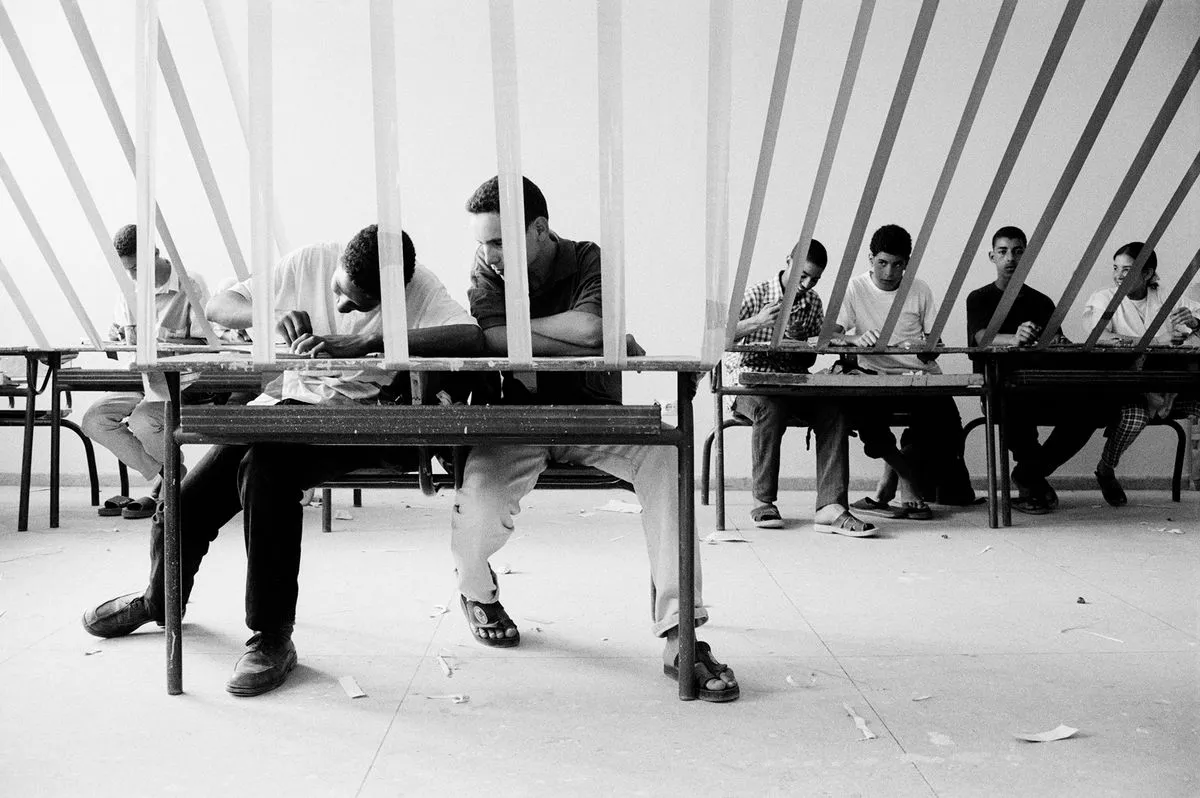
The photographs are playful, at times unsettling, striking a balance between absurdity, humor, and discomfort. Benohoud's students appear as performers in carefully staged scenes, their presence shaped more by gesture and setting than by facial expression. Framed with meticulous care, these images blend the banality of the classroom with an underlying sense of existential unease, offering a surreal commentary on the limitations of traditional education. The classroom becomes a site of resistance and rebellion, where the boundaries between student and teacher, freedom and discipline, are blurred and critically examined.
What makes The Classroom particularly striking is how it delves into postcolonial identity within the Moroccan context. Through his carefully staged compositions, Benohoud captures not only the personal tension of struggling against societal norms, but also the collective challenge of forming one’s identity within a restrictive educational system. The classroom, both a microcosm and a reflection of larger societal forces, becomes a space where the boundaries of authority and autonomy are blurred. The playful and absurd elements in the photographs reveal the absurdity of these control structures, while the deeper, more unsettling undertones expose the oppression, violence and isolation they inflict on individuals.
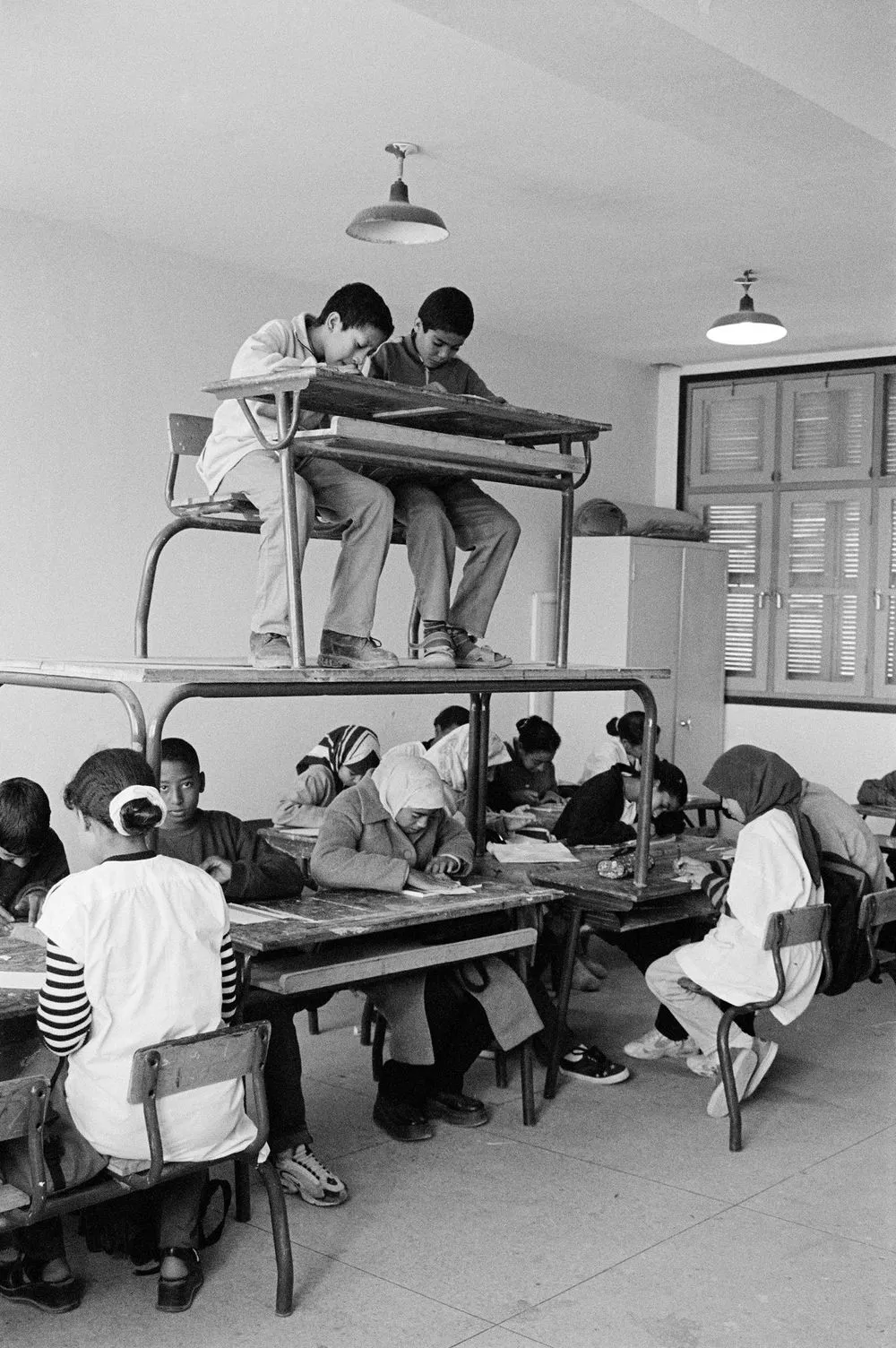
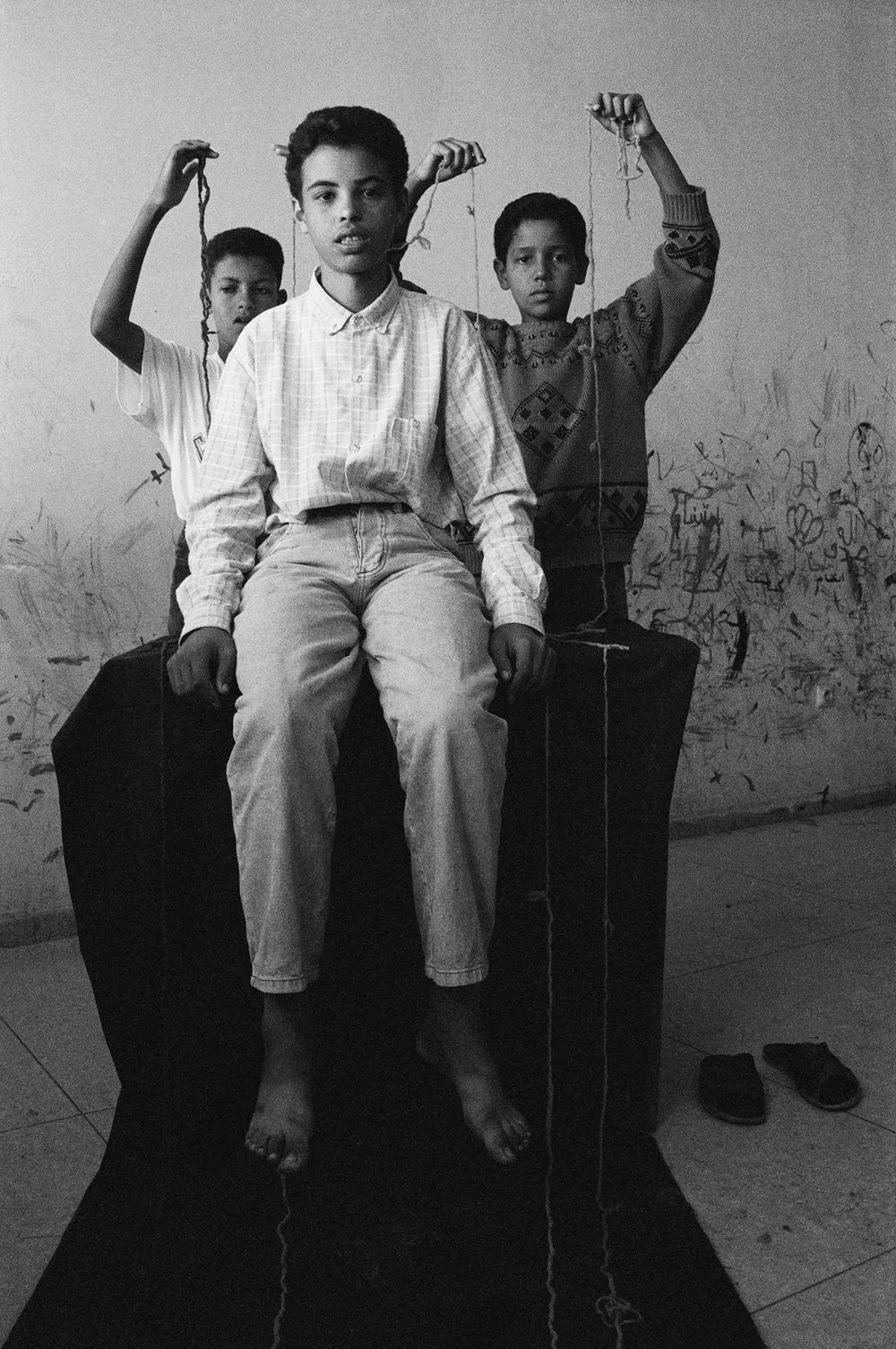
The inclusion of Michel Foucault's excerpt from Discipline and Punish further deepens the philosophical undercurrent of the work. Foucault's concept of the "docile body," shaped by institutions that impose discipline and surveillance, resonates throughout Benohoud's photographs. The students' playful gestures — lifting chairs, covering faces, contorting bodies — become a silent rebellion against the very system that seeks to shape them. Yet, the rebellion remains in a state of tension, never fully breaking free, much like the societal structures they critique.
The Classroom is more than just a critique of an educational system; it is a poignant commentary on the complexities of identity, autonomy, and the struggle for freedom in postcolonial Morocco. Benohoud's images create a powerful, lasting impression, leaving the viewer to consider how much of our identity is shaped by the structures that govern our lives, and what it means to reclaim that identity in the face of those very structures.
